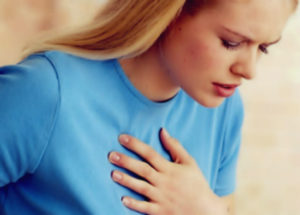Shorter days and less sunlight in winter can trigger Seasonal Affective Disorder. Explore expert-backed solutions to lift your mood this season.
- Seasonal Affective Disorder (SAD) results from limited sunlight disrupting internal clocks, melatonin, and serotonin levels
- Treatments like light therapy, SSRIs, and nutrient-rich diets can help manage symptoms effectively
- Vitamin D may support mood, but research remains inconclusive- focus on balanced nutrition and lifestyle changes
As winter approaches, the days become shorter and there is less sunlight. This seasonal change may trigger symptoms of seasonal affective disorder (SAD), which affects around one in every twenty Americans (1).
Advertisement
What is Seasonal Affective Disorder (SAD)?
SAD is a type of depression characterized by symptoms that might interfere with daily functioning and is caused by fewer daylight hours in the winter. It is not the same as the “winter blues,” which occur when cold weather and insufficient sunlight cause feelings of sadness or a loss of interest in activities (2).
SAD symptoms frequently overlap with those of depression. Common symptoms include persistent sorrow or despair, a loss of interest in formerly enjoyable activities, and excessive napping.
SAD is thought to be caused by reduced daylight hours, which might disrupt your “internal clock” (2). These alterations in your circadian clock might impact melatonin and serotonin levels, resulting in classic depressive symptoms (3).
Advertisement
Can Supplements Help Treat Seasonal Affective Disorder (SAD)?
Some social media influencers suggest that taking vitamin D3 and vitamin K2 supplements can help with these symptoms.
“You need to buy vitamin D before seasonal depression hits, before the sun goes away for months on end,” TikTok user Cirena Wilson wrote. “And make sure you get the one with K2.”
Advertisement
Can Vitamin D and Vitamin K Help with Seasonal Depression?
Vitamin D and vitamin K are essential minerals for overall wellness (4, 5). But is there any evidence that vitamins D and K can help with SAD symptoms?
A study published in Nutrients investigated if vitamin D could help decrease SAD symptoms. While the findings were ambiguous, the authors hypothesized that vitamin D deficiency may increase the chance of getting SAD (6).
“Vitamin D is involved in the pathways of production of melatonin and is believed to play a key role in serotonin activity, which further links serotonin, melatonin, and light exposure, but mainly deficiency of vitamin D and SAD,” the study’s authors stated.
Certain health organizations, such as the National Health Service in the United Kingdom and the National Institute of Mental Health in the United States, offer vitamin D as a therapeutic option for those suffering from SAD but make no mention of vitamin K (3, 7).
According to Maya Vadiveloo, Ph.D., RD, FAHA, an associate professor of nutrition at the University of Rhode Island College of Health Sciences, there is some evidence that vitamin D may benefit persons living in the far north who receive limited sun exposure during the winter. However, the data does not support vitamin D supplementation for SAD.
“Overall, I believe that, while there isn’t a strong evidence base to support dietary supplementation for SAD prevention/treatment, there is good evidence to support eating diets rich in fruits and vegetables, whole grains, nuts, seeds, legumes, and heart-healthy oils while limiting less healthy foods high in added sugars, salt, and saturated fats,” Vadiveloo stated (8).
In addition, Taylor Wallace, PhD, CFS, an adjunct associate professor at Tufts University’s Friedman School of Nutrition Science and Policy, stated that the studies that have showed favorable benefits with vitamin D supplementation and SAD are not very solid.
“There are some studies [and small clinical trials] that show vitamin D may affect mood in this regard,” Wallace informed me. “However, they are primarily observational, and the effects have not held true in large clinical trials.”
“It’s not clear that vitamin K would be beneficial in helping to boost vitamin D in terms of preventing SAD symptoms,” Wallace said, cautioning that patients should avoid taking too much vitamin D or K. Wallace suggested that most people take a daily multivitamin.
What Are the Treatment Options for Seasonal Affective Disorder (SAD)?
If you’re seeking effective SAD remedies, there are various options available. You can attempt light treatment, which involves sitting in front of a specialized light box that filters out dangerous UV rays (9). Most folks require only approximately 20 minutes per day to notice the effects.
“It’s not clear that vitamin K would be beneficial in helping to boost vitamin D in terms of preventing SAD symptoms,” Wallace said, cautioning that patients should avoid taking too much vitamin D or K. Wallace suggested that most people take a daily multivitamin.
You can either consult with a mental health practitioner or take selective serotonin reuptake inhibitors (SSRIs), a form of antidepressant medicine that relieves SAD symptoms (3).
Eating a nutrient-dense diet and making an effort to spend more time outside in the sun can also have a positive impact on your mood (10).
References:
- Seasonal Affective Disorder (SAD)
(https://www.psychiatry.org/patients-families/seasonal-affective-disorder) - Beat the Winter Blues
(https://newsinhealth.nih.gov/2013/01/beat-winter-blues) - Seasonal Affective Disorder
(https://www.nimh.nih.gov/health/publications/seasonal-affective-disorder) - Vitamin D
(https://ods.od.nih.gov/factsheets/VitaminD-Consumer/) - Vitamin K
(https://ods.od.nih.gov/factsheets/VitaminK-Consumer/) - The role of water-soluble vitamins and vitamin D in prevention and treatment of depression and seasonal affective disorder in adults
(Jahan-Mihan A, Stevens P, Medero-Alfonso S, et al. The role of water-soluble vitamins and vitamin D in prevention and treatment of depression and seasonal affective disorder in adults. Nutrients. 2024;16(12):1902. doi:10.3390/nu16121902) - The role of diet, eating behavior, and nutrition intervention in seasonal affective disorder: a systematic review
(Yang Y, Zhang S, Zhang X, Xu Y, Cheng J, Yang X. The role of diet, eating behavior, and nutrition intervention in seasonal affective disorder: a systematic review. Front Psychol. 2020;11:1451. doi:10.3389/fpsyg.2020.01451) - Bright light therapy: seasonal affective disorder and beyond
(Campbell PD, Miller AM, Woesner ME. Bright light therapy: seasonal affective disorder and beyond. Einstein J Biol Med. 2017;32:E13-E25.) - Feeling SAD?
(https://newsinhealth.nih.gov/2024/11/feeling-sad)
Source-Medindia



